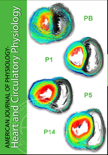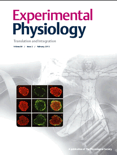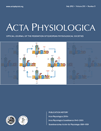
Frontiers in Physiology
Scope & Guideline
Transforming understanding of physiological processes.
Introduction
Aims and Scopes
- Integrative Physiology:
The journal emphasizes the integration of physiological mechanisms across various systems, including cardiovascular, respiratory, and metabolic functions, to understand their roles in health and disease. - Exercise Physiology:
A consistent focus on how different types of physical activity and training regimens affect physiological responses, adaptations, and overall health outcomes. - Cellular and Molecular Physiology:
Research that explores the molecular and cellular underpinnings of physiological processes, including signaling pathways, gene expression, and metabolic regulation. - Comparative Physiology:
Studies that compare physiological processes across species, contributing to our understanding of evolutionary adaptations and mechanisms. - Clinical Physiology:
Research aimed at understanding the physiological basis of diseases, particularly those related to cardiovascular, metabolic, and respiratory health, and the implications for treatment and rehabilitation. - Environmental Physiology:
Investigations into how environmental factors, such as altitude, temperature, and pollutants, influence physiological responses and adaptations.
Trending and Emerging
- Omics Technologies:
The use of genomics, proteomics, and metabolomics to explore complex physiological processes is on the rise, providing deeper insights into health and disease mechanisms. - Artificial Intelligence and Machine Learning:
Increasing integration of AI and machine learning techniques in physiological research for data analysis, predictive modeling, and enhancing diagnostic capabilities. - Microbiome Research:
An emerging focus on the role of the gut microbiome in health and disease, particularly its impact on metabolic and immune functions. - Personalized Medicine:
Research that tailors health interventions based on individual physiological responses and genetic profiles is gaining traction, particularly in exercise and rehabilitation contexts. - Neurophysiology and Mental Health:
Growing recognition of the interplay between physiological responses and mental health, particularly in the context of stress, anxiety, and chronic diseases. - Environmental Stressors:
An increased emphasis on understanding how environmental factors, such as climate change, pollution, and altitude, affect physiological processes and adaptations.
Declining or Waning
- Traditional Sports Medicine:
With the growing emphasis on integrative and personalized approaches to health, traditional sports medicine topics have become less frequent, as researchers explore broader physiological impacts of exercise. - Basic Animal Models:
The reliance on conventional animal models, particularly in basic research, appears to be waning, as more sophisticated and translational models, including humanized systems, are prioritized. - Static Physiology:
Research that focuses solely on static measurements of physiological parameters is declining in favor of dynamic and real-time monitoring techniques that capture physiological changes over time. - Single-Factor Studies:
Research focusing on isolated factors affecting physiology is decreasing, with a trend towards multi-factorial studies that consider the complex interactions of various physiological, environmental, and lifestyle factors.
Similar Journals

AMERICAN JOURNAL OF PHYSIOLOGY-HEART AND CIRCULATORY PHYSIOLOGY
Exploring the depths of heart and circulatory physiology.AMERICAN JOURNAL OF PHYSIOLOGY-HEART AND CIRCULATORY PHYSIOLOGY, published by the American Physiological Society, is a premier journal dedicated to advancing the understanding of cardiovascular physiology. With an ISSN of 0363-6135 and an E-ISSN of 1522-1539, this esteemed journal has been a vital resource since its inception in 1977, and continues to publish cutting-edge research that shapes the fields of cardiology and physiology. Recognized as a Q1 journal in multiple categories, it ranks impressively within the top tier of its fields, including a notable 18th percentile rank in Physiology (medical). The journal’s impact factor and extensive reach in the academic community affirm its significance in promoting innovative studies and insights. While it does not offer open access options, the journal remains accessible through institutional subscriptions, making it an essential tool for researchers, professionals, and students alike, who are keen to stay abreast of the latest developments in heart and circulatory physiology. For further information, the journal is based in the United States at 6120 Executive Blvd, Suite 600, Rockville, MD 20852. As a cornerstone of cardiovascular research, it invites contributions that push the boundaries of knowledge and enhance clinical practice.

CHINESE JOURNAL OF PHYSIOLOGY
Advancing the frontiers of physiological research.CHINESE JOURNAL OF PHYSIOLOGY, published by WOLTERS KLUWER MEDKNOW PUBLICATIONS, has been a vital resource since its inception in 1971, catering to the expansive field of physiology. Operating out of Taiwan, this journal addresses critical research in both general and medical physiology, providing a platform for innovative studies that contribute significantly to the understanding of biological processes. With an emphasis on disseminating high-quality, peer-reviewed articles, it holds a Q4 ranking in Physiology and a Q3 ranking in Medical Physiology as of 2023, reflecting its commitment to advancing physiological science. The ISSN for this journal is 0304-4920 and the E-ISSN is 2666-0059. While access options are not available as open access, researchers and professionals can still benefit from its valuable insights. Notably, it ranks #78/113 in Medicine - Physiology and #159/193 in Biochemistry, Genetics, and Molecular Biology - Physiology on Scopus, indicating its growing influence in the scientific community. We invite researchers, professionals, and students alike to explore the wealth of knowledge featured within the pages of the CHINESE JOURNAL OF PHYSIOLOGY.

Journal of Comparative Physiology B-Biochemical Systems and Environmental Physiology
Unlocking the Secrets of Biochemical Systems in NatureJournal of Comparative Physiology B-Biochemical Systems and Environmental Physiology, published by SPRINGER HEIDELBERG in Germany, stands at the forefront of research in the fields of physiology, biochemistry, and ecological systems. With a commitment to fostering interdisciplinary communication, this journal has been a vital resource since its inception in 1974, converging scientific exploration through the lens of biochemical mechanisms and environmental adaptations in animal systems. Renowned for its rigorous peer-review process, it has achieved impressive rankings, including Q2 in Animal Science and Zoology and Ecology, Evolution, Behavior and Systematics, reflecting its substantial impact within these disciplines. The journal aims to disseminate cutting-edge research that advances our understanding of physiological and biochemical processes while addressing contemporary environmental challenges. While currently operating on a traditional access model, the journal's contributions are crucial for researchers, professionals, and students seeking profound insights into the complex interactions between organisms and their environments.

Journal of Experimental Zoology Part A-Ecological and Integrative Physiology
Bridging disciplines to illuminate organismal biology.The Journal of Experimental Zoology Part A - Ecological and Integrative Physiology, published by WILEY, is a distinguished peer-reviewed journal focusing on ecological and evolutionary physiology, providing a robust platform for research that bridges both ecological and integrative physiological concepts. With an impressive impact factor and recognition as a Q1 journal in both Animal Science and Zoology and Ecology, Evolution, Behavior and Systematics in 2023, it positions itself as a leader in advancing our understanding of organismal biology and environmental interactions. The journal is committed to open access, offering researchers and professionals worldwide the opportunity to share and disseminate their findings freely. Since its inception in 2017, it has rapidly gained prominence—ranking within the top percentiles of Scopus Ranks across several disciplines, including genetics and molecular biology. This not only underscores its relevance but also highlights its vital role in facilitating interdisciplinary approaches essential for addressing contemporary biological challenges. Researchers, educators, and students alike will find in this journal a valuable resource for cutting-edge studies and innovative methodologies in the field.

Physiology International
Advancing the Frontiers of Physiology and MedicinePhysiology International is a distinguished journal dedicated to the exploration and advancement of knowledge in the fields of physiology, sports medicine, and rehabilitation. Published by AKADEMIAI KIADO ZRT in Hungary, this open-access journal has been a reliable source of scholarly articles since its inception in 2016, providing valuable insights into both complementary and alternative medicine, as well as traditional medical practices. With an impact factor that situates it in Q2 and Q3 quartiles across related disciplines, including Physical Therapy, Sports Therapy and Rehabilitation and Orthopedics and Sports Medicine, it represents a vital resource for professionals and researchers looking to stay abreast of the latest findings and methodologies. The journal is indexed on Scopus, signifying its credibility and relevance in the medical community. As it continues to develop through 2024, Physiology International invites contributions that challenge existing paradigms and foster innovative approaches to health and wellness, making it an essential platform for advancing the conversation in medical physiology and its applications.

EXPERIMENTAL PHYSIOLOGY
Fueling innovation in the understanding of physiological processes.EXPERIMENTAL PHYSIOLOGY, published by WILEY, stands as a vital resource in the fields of Nutrition and Dietetics and Physiology, providing high-quality, peer-reviewed research since its inception in 1990. With an impressive categorization into the Q2 quartile in these domains, the journal emphasizes the integration of experimental and clinical findings, making significant contributions to our understanding of physiological processes and nutritional impacts on health. The journal operates within a competitive landscape, ranked significantly in Scopus, showcasing its relevance to both the medical community and nutritional sciences, as evidenced by its rankings in Nursing, Medicine, and Biochemistry. Though it is not currently open access, the journal remains an indispensable tool for researchers, professionals, and students seeking to deepen their knowledge and stay updated on cutting-edge research. With a publication window extending to 2024, EXPERIMENTAL PHYSIOLOGY continues to influence the academic discourse and promote advancements in its respective fields.

JOURNAL OF PHYSIOLOGY AND BIOCHEMISTRY
Fostering Collaborative Discoveries in Biomedical ResearchJOURNAL OF PHYSIOLOGY AND BIOCHEMISTRY, published by Springer in the Netherlands, serves as a pivotal platform for disseminating high-quality research within the fields of physiology, biochemistry, and related biomedical sciences. With an impressive impact factor reflected in its categorization as Q2 in Biochemistry and Q1 in Medicine (miscellaneous), this journal fosters a vibrant community of scholars dedicated to advancing knowledge and innovation. The journal’s broad scope encompasses a wide range of topics from cellular mechanisms to systemic physiology, making it relevant for both theoretical and applied sciences. Researchers and practitioners are encouraged to utilize the available Open Access options to reach a wider audience. The journal’s continuous contribution to the scientific dialogue since its inception in 1996 positions it as a key resource for professionals and students alike, facilitating the exploration of cutting-edge topics and collaborative research opportunities.

Acta Physiologica
Fostering Collaboration in Physiological SciencesActa Physiologica is a premier, peer-reviewed journal published by WILEY, dedicated to the dissemination of high-quality research across the field of physiology. With an impressive impact factor reflective of its Q1 category ranking in Physiology for 2023, this journal is a vital resource for researchers, professionals, and students alike, seeking to explore the complexities of biological systems. The journal is indexed with a commendable Scopus rank of #18 out of 193 in its category, placing it within the top 10% of its field, which underscores its influence and citation frequency within the academic community. Acta Physiologica publishes a variety of articles that address fundamental physiological concepts, innovative methodologies, and cross-disciplinary research. With its open access options, the journal ensures that cutting-edge knowledge is readily accessible, fostering an environment of collaboration and advancement in the study of physiology. Spanning from 2006 to 2024, the journal continues to be at the forefront of physiological research and education, encouraging the global sharing of knowledge through its comprehensive content.

Current Opinion in Physiology
Uncovering Innovative Perspectives in PhysiologyCurrent Opinion in Physiology, published by Elsevier, is a leading journal dedicated to the dynamic field of physiology. With an E-ISSN of 2468-8673, this journal provides a platform for the latest insights and perspectives, reflecting the evolving landscape of physiological research. Operating from the United Kingdom, the journal holds a respectable impact factor and is ranked Q2 in both general physiology and medical physiology categories, highlighting its prominence among the global academic community. With Scopus rankings placing it in the 64th and 60th percentiles within its respective categories, Current Opinion in Physiology serves as an essential resource for researchers, professionals, and students eager to stay informed about innovative theories and emerging trends in physiology. The publication emphasizes high-quality reviews that summarize current knowledge and future directions, ensuring readers gain valuable insights applicable in both clinical and research settings.

Journal of Physiological Sciences
Unlocking the Secrets of Physiological MechanismsThe Journal of Physiological Sciences, published by BMC, stands as a prominent platform for the advancement of research in the field of physiology. Based in Japan, this open-access journal (ISSN: 1880-6546, E-ISSN: 1880-6562) is committed to disseminating high-quality scientific articles that explore various facets of physiological functions and mechanisms. With a 2023 Scopus ranking placing it within the 41st percentile in the category of Physiology, it is recognized for contributing significant insights that bridge basic and applied physiological research. The journal maintains a Q2 quartile ranking within its category, highlighting its impact within the scientific community. Researchers, professionals, and students are encouraged to engage with cutting-edge studies published from 2006 to 2024, fostering an environment of knowledge accessibility and scientific collaboration. The journal not only serves as a vital resource for those involved in physiological research but also promotes broader understanding and application of physiological principles across various health and science sectors.